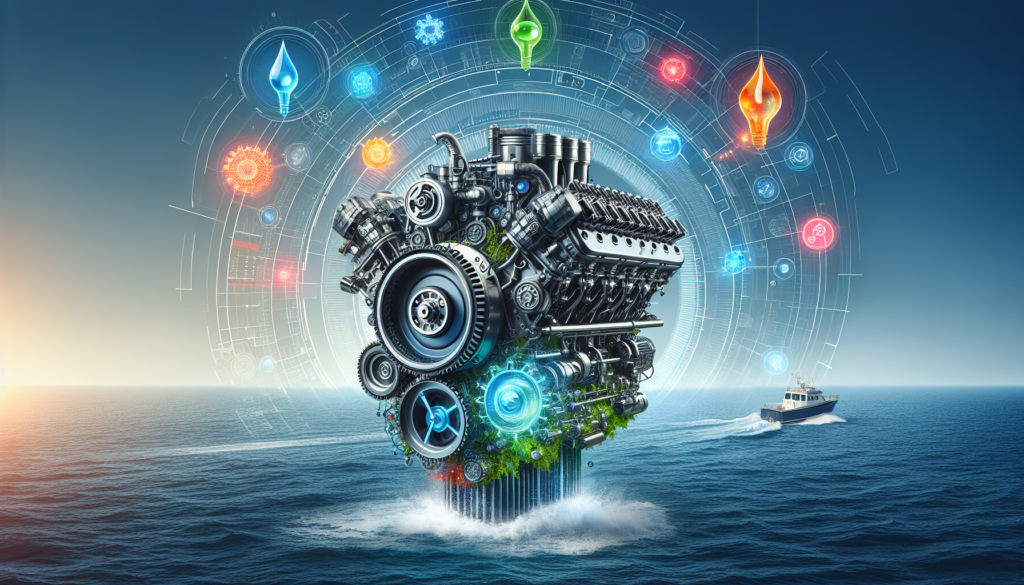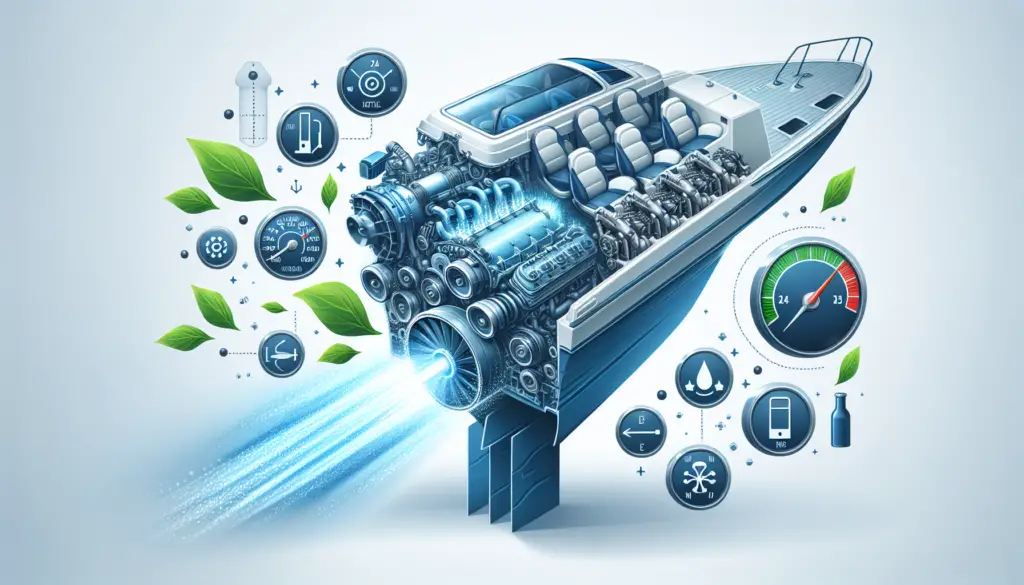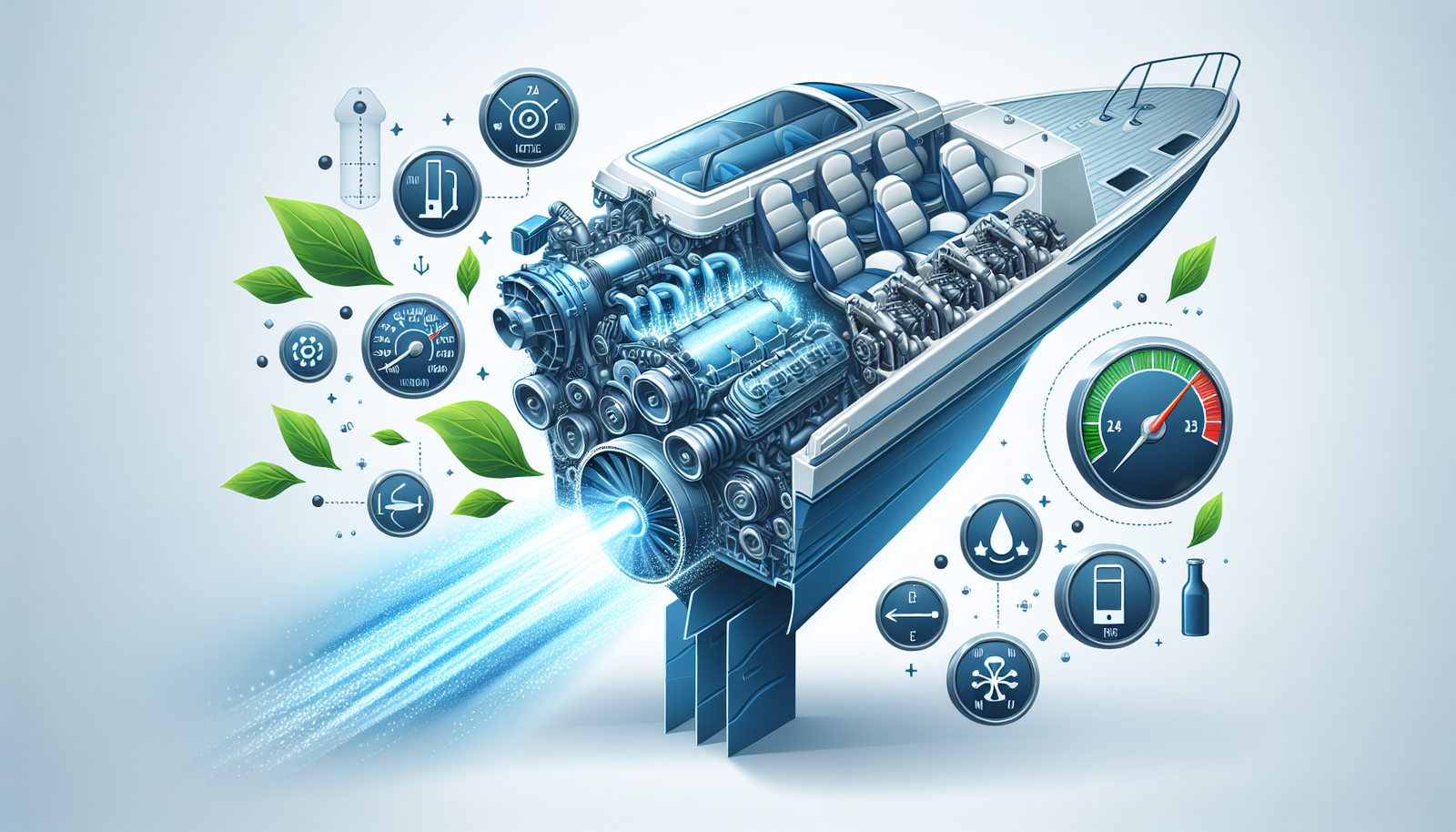If you’re searching for ways to boost the efficiency of your boat engine, you don’t have to look far. This article, “The Best Fuel Additives For Improving Boat Engine Performance”, is your go-to guide for all you need to know about premium fuel additives that can take your boat’s engine performance to the next level. From enhancing fuel economy to reducing engine wear, this piece will help you understand how including these particulars in your boat’s fuel supply can have a significant impact on your boat’s overall performance. No more struggling with sluggish engine response; with the right fuel additives, you’re set to enjoy smoother and more powerful boating adventures.

Understanding Fuel Additives
You’ve probably heard of fuel additives before, but do you really know what they are?
What is a Fuel Additive
Simply put, a fuel additive is a liquid or powder compound that is added to your boat’s fuel to enhance its properties or performance. It might sound like a magic potion, but it’s really just science. These additives traverse a range – from improving fuel efficiency to protecting your engine from damage.
How Do Fuel Additives Work in Boat Engines
It’s simple really. When you add them to your fuel, they get dispersed all throughout the fuel system. Think of them as little workers, cleaning, protecting and improving your engine from inside out.
Benefits of Fuel Additives for Boat Engine Performance
Sure, they sound cool. But how do these enchanting additives really benefit your boat’s engine? Let’s delve into that.
Improving Fuel Efficiency
By reducing the amount of friction in your engine, fuel additives help you get the most bang for your buck, making your boat squeeze out that extra mile from a gallon of fuel.
Reduction in Emissions
By improving your engine’s efficiency, fuel additives help to reduce the amount of harmful emissions your boat produces. It’s a small step towards a greener planet.
Cleaning the Fuel System
Fuel additives are great for cleaning out your boat’s fuel system. They clear the fuel lines, ensuring better fuel flow and better performance.
Preventing Rust and Corrosion
Working in a water environment, rust and corrosion are these ‘beasts’ that every boat owner dreads. Here too, fuel additives work their magic, preventing rust and corrosion, thus extending the life of your engine.
Types of Fuel Additives
With so many benefits packed into one, it’s no surprise there are different types of fuel additives, each with its own forte.
Octane Boosters
These guys cranks up the octane level of your fuel, improving the performance and power of your engine.
Fuel Stabilizers
A must-have if your boat stays idle for long. They prevent the fuel from degrading and thus protecting your engine.
Fuel Detergents
Just your regular cleaners – they keep your fuel system spic and span, increasing its working efficiency.
Anti-Gel Additives
Perfect for colder climates, these additives prevent the fuel from thickening, ensuring smooth operation.
Cetane Boosters
For diesel engines, these additives improve the ignition quality of the fuel, making the engine run smoother and quieter.
Best Fuel Additives to Improve Performance and Efficiency
Everyone wants the best. So, which ones are they?
STP Marine Formula
Well known in the industry, the STP Marine Formula provides great all-around protection. It’s a safe bet.
Sea Foam Motor Treatment
Renowned for its cleaning power, this additive will keep your engine running smoothly and efficiently.
Star Tron Enzyme Fuel Treatment
This one’s got a fan following for its ability to improve fuel efficiency and bringing older engines back to life.
Lucas Oil Fuel Treatment
A great all-rounder, this one cleans, lubricates, and increases power – all in one go!

Analyzing Top Performing Fuel Additives
Key Ingredients
The effectiveness of a fuel additive hinges on its ingredients. Some common ones are detergents, corrosion inhibitors, antioxidants, and demulsifiers.
Pros and Cons
While fuel additives bring a slew of benefits, they aren’t without cons. Some can be price, compatibility issues with certain engines, and occasionally the hassles of frequent application.
Performance Metrics
Evaluating the performance of a fuel additive involves assessing function-specific indicators like improved fuel economy, decrease in emission levels, and noted increase in engine response and power.
The Impact of Fuel Additives on Longevity of Boat Engines
A long, healthy engine life is every boat owner’s dream and fuel additives play a crucial role in this.
Preventing Deposits and Contaminants
Fuel additives prevent and clean deposits in your fuel system. Less deposits mean less wear and tear, making your engine live longer.
Protecting Engine Components
They also provide a protective layer to your engine’s internal components, therefore protecting them from harsh operating conditions and corrosion.
Reducing Overall Wear and Tear
By keeping the engine cleaner, lubricated and efficient, fuel additives significantly reduce overall wear and tear, helping your engine to last longer.

The Role of Fuel Additives in Different Types of Boat Engines
Depending on the type of your boat’s engine, some additives might work better than others.
Fuel Additives for Diesel Engines
The Cetane Boosters and Anti-gelling additives work best for diesel engines, improving their performance and making them run smoother.
Fuel Additives for Gasoline Engines
In the case of gasoline-based engines, Octane Boosters are quite effective. They enhance their power and performance levels.
Fuel Additives for Outboard Engines
Considering the unique structure and the demanding operational environment, a multi-purpose fuel additive like the ones listed above would be the ideal choice here.
Fuel Additives for Older Boat Engines
Restoring Performance
Fuel additives are magnificent at breathing new life into older engines. They clean out deposits and improve power and performance, making your boat run like almost new.
Preventing Aging Issues
Older engines are prone to issues like rust, corrosion and deposits. Fuel additives act as insurance against these, ensuring a longer engine life.
Selecting the Right Fuel Additive
Selecting the right fuel additive for your older engines depends on their specific issues. Some might need cleaning, whereas others might benefit from rust-protection. You have an array of options here.
The Cost versus Efficiency Debate
Sure, fuel additives come with a price tag but do their benefits outweigh their costs?
Initial Cost of Fuel Additives
No denying, fuel additives do add to an extra line in your expenditures. The price can vary significantly based on the brand, type, and performance claims.
Long Term Savings from Improved Efficiency
But hey, consider the long-term savings. Improved fuel efficiency and reduced maintenance costs save money in the long run. Your engine might even last longer, pushing that hefty replacement cost down the road.
Analyzing the Cost-Benefit Ratio
So, when you balance it all, the cost-benefit analysis tends to fall in favor of fuel additives. They might seem costly upfront, but they pay off in the form of better performance, efficiency, and longer engine life.
Using Fuel Additives: Best Practices
Before we end, let’s touch upon the best practices when using fuel additives.
Correct Ratio for Mixing
Different additives require different mixing ratios. Always follow the manufacturer’s instructions to avoid overdoing or underdoing it.
Ideal Time to Add the Fuel Additive
Typically, it’s best to add the fuel additive right before refueling. This allows for the additive to mix well with the fuel.
Proper Storage of Fuel Additives
Lastly, store your fuel additives in a cool, dry place away from heat sources or ignition.
Now that you’re well-informed about fuel additives and their benefits, hopefully, this will help you make the right choices in upkeeping your boat engines. A happy engine, after all, leads to a happier boating experience!

